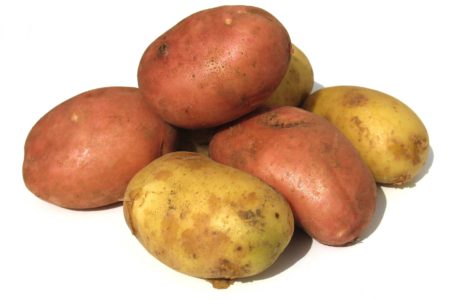Did you have a glass of orange juice this morning? If so, you may want to know that the simple pleasures brought to us by citrus fruit are under attack from a disease called citrus greening or yellow dragon disease. It’s caused by bacteria that are not harmful to people, but cripple citrus trees by choking off their internal circulation system. The malady puts our $3 billion per year citrus industry firmly in the crosshairs.
Citrus greening evidently originated in China in the early 20th century. Once a tree is infected by the disease, there is no cure. The bacteria that causes the disease blocks the ability of the tree to circulate water and nutrients. Fruit doesn’t ripen, staying green and misshapen. There are three different strains of the bacteria in question, each plaguing different parts of the globe.
Citrus greening is attacking orange groves in Florida. It is also moving to groves in Texas and California, and threating those in Arizona. If it isn’t successfully combatted, citrus greening could wipe out the U.S. citrus industry. It’s already decimated citrus orchards in Jamaica.
The bacteria behind the disease is spread to the trees by an insect similar to aphids and whiteflies called the Asian citrus psyllid (the name is said like “SILL-id”). The insects feed on the trees and, when they do so, they transmit the bacteria to the plant. It’s a bit like infected mosquitoes can give you malaria when they feed on your blood. In time the bacteria in the citrus trees multiply and spread, causing the plant grave harm.
Citrus greening is believed to have reached the U.S. from China in the early 2000s. The insects that spread the disease are tough to control. Pesticides have been used with some success, but scientists are concerned that the psyllids will develop resistance to the chemicals. Another approach is to introduce into orchards “good” insects that prey on the psyllids. Using such biocontrols, however, has so far not met with much success because the psyllids reproduce faster than the predatory insects. Then again, you might think that researching around the globe for disease-resistant trees might help, but so far no such trees have been found.
Enter more sophisticated approaches to interrupting the disease cycle.
“We are using genomics to see what genes are being ‘expressed’ in the psyllids as they feed on the citrus tree,” explained Prof. David Gang to me recently. Gang is on the faculty at Washington State University and is one member of a large team of researchers at several institutions that is researching new responses to citrus greening disease. The multifaceted effort is funded by the U.S. Department of Agriculture.
“If we know the genes and proteins involved in infection, we can try to interrupt the transmission of the disease,” Gang said.
Gang and others working with him have the goal of isolating and sequencing the genes expressed in the insects as they feed on citrus plants. Other scientists collaborating on the project can use the gene expression data in their work.
“We hope to ‘knock out’ genes that function in the transmission of the bacteria inside the psyllid,” Gang told me. “Then the insect won’t transmit the disease.”
One ultimate goal of the work is to create a new type of psyllid that will be unable to harbor or transmit the disease-causing bacteria. The new insects would outcompete the old, disease-carrying ones because the bacteria weaken the insects in which they live. But Gang and his colleagues are very concerned with potential problems related to modified organisms, and they are looking at how best to mitigate potential problematic outcomes.
Responding to new threats to food crops is a never-ending task for agricultural scientists. Their work is complex, spans years, and is sometimes expensive. But it keeps us fed – and free to drink our orange juice in the morning.
“And it’s not just oranges that are at issue,” Gang told me. “Grapefruit, lemons and limes are also affected.”
Here’s hoisting a tangy glass of OJ or lemonade to the good work Gang and others are doing in defense of U.S. citrus trees.






